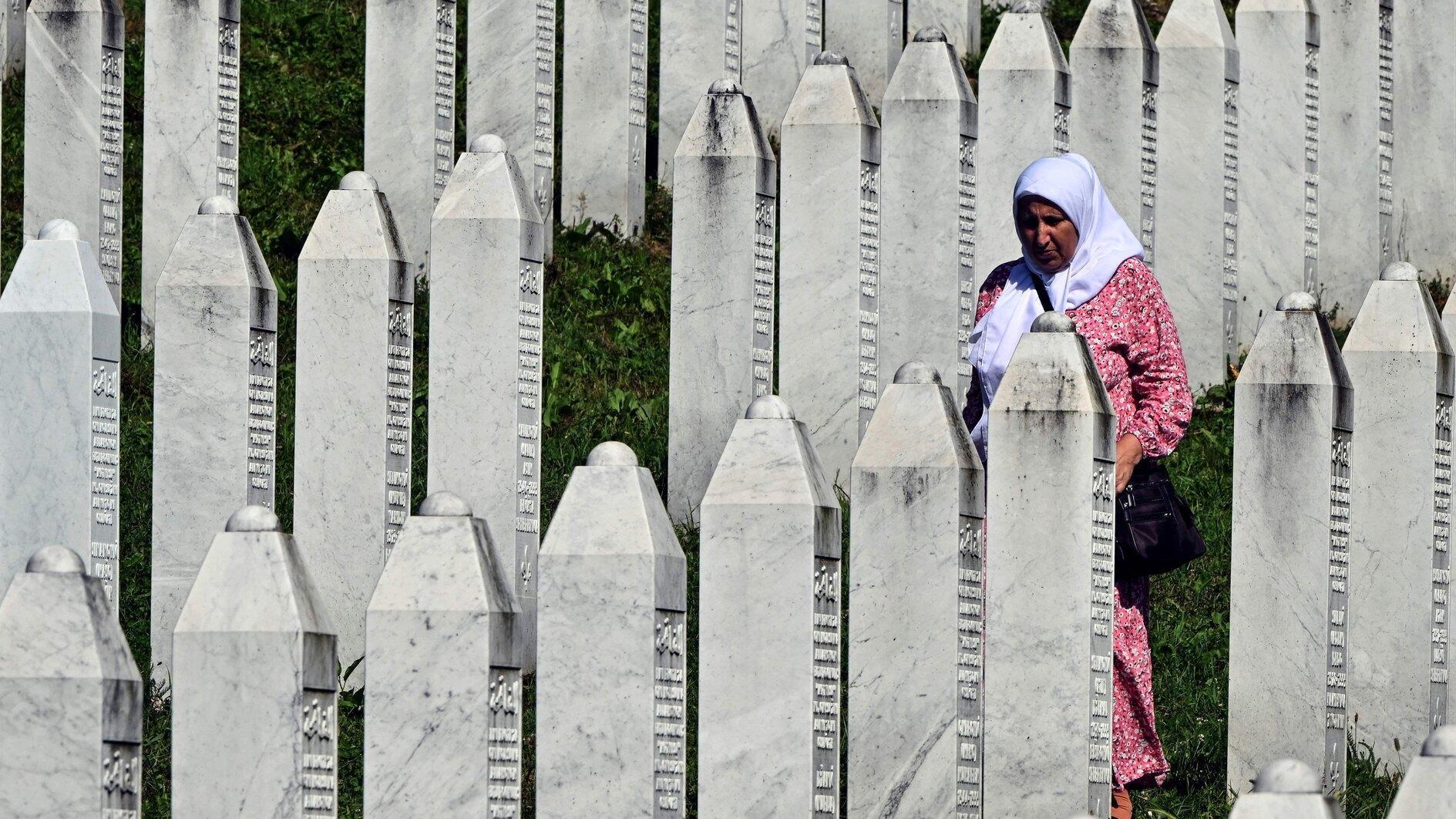
President Recep Tayyip Erdoğan has drawn a parallel between the 1995 genocide of Bosnian Muslims and the current situation in Gaza, condemning the violence.
"Those responsible for the barbarism in Gaza will sooner or later be held accountable before international law, just as they were in Srebrenica," Erdoğan said in a video message sent to the annual commemoration in eastern Bosnia on July 11.
Erdoğan pledged Türkiye's continued efforts to seek justice for the "massacre" in Gaza.
His remarks came as thousands gathered in Srebrenica to remember the genocide, during which over 8,000 Bosnian Muslims were killed by Bosnian Serb forces in July 1995.
In a ceremony, the remains of 13 men and one teenage boy were laid to rest at the memorial cemetery outside Srebrenica, joining more than 6,600 other victims reburied there. The process of finding and identifying bodies continues, with many remains scattered across multiple mass graves.
"Today, the Palestinian people in Gaza and the occupied territories are suffering a similar atrocity to the one that took place 29 years ago in Srebrenica," Erdoğan said.
"International institutions and organizations are just watching the massacre of nearly 40,000 innocent people, including 16,000 children, just as they did 29 years ago."
The president extended condolences to the victims' families and the entire Bosnian community, labeling the massacre as a "black stain" on human history.
Türkiye has previously expressed its intent to join South Africa's ongoing genocide case against Israel at the International Court of Justice.
Main opposition Republican People's Party (CHP) leader Özgür Özel attended the commemoration in Bosnia.
He condemned the massacre in a message shared on X. "We will not forget Srebrenica so that similar sufferings will not happen in other geographies," he wrote.
The Srebrenica killings were the bloody crescendo of Bosnia’s 1992-95 war, which came after the breakup of Yugoslavia unleashed nationalist passions and territorial ambitions that set Bosnian Serbs against the country’s two other main ethnic populations — Croats and Bosniaks, who are mostly Muslim.
The commemoration came only weeks after the United Nations General Assembly voted to designate July 11 annually as an international day of reflection and commemoration of the 1995 Srebrenica genocide.
Serbia and Bosnian Serbs strongly opposed its adoption, wrongly claiming it portrays all Serbs as “genocidal people.” Serb leaders insist the massacre is not genocide, but a “terrible crime." They have also downplayed the number of those killed.
Türkiye has officially declared July 11 as the "International Day of Reflection and Remembrance of the Srebrenica Genocide," according to a presidential decree published in the Official Gazette on Wednesday.
"July 11, accepted as the 'International Day of Reflection and Remembrance of the Srebrenica Genocide,' will be commemorated in our country to share the pain, condemn genocide and crimes against humanity, and raise global awareness through special remembrance events, educational activities, and public awareness initiatives in honor of the victims of the Srebrenica genocide," it added.
"We commemorate with respect and mercy our Bosniak brothers and sisters who were martyred in the Srebrenica genocide 29 years ago," said the Turkish Foreign Ministry on X.